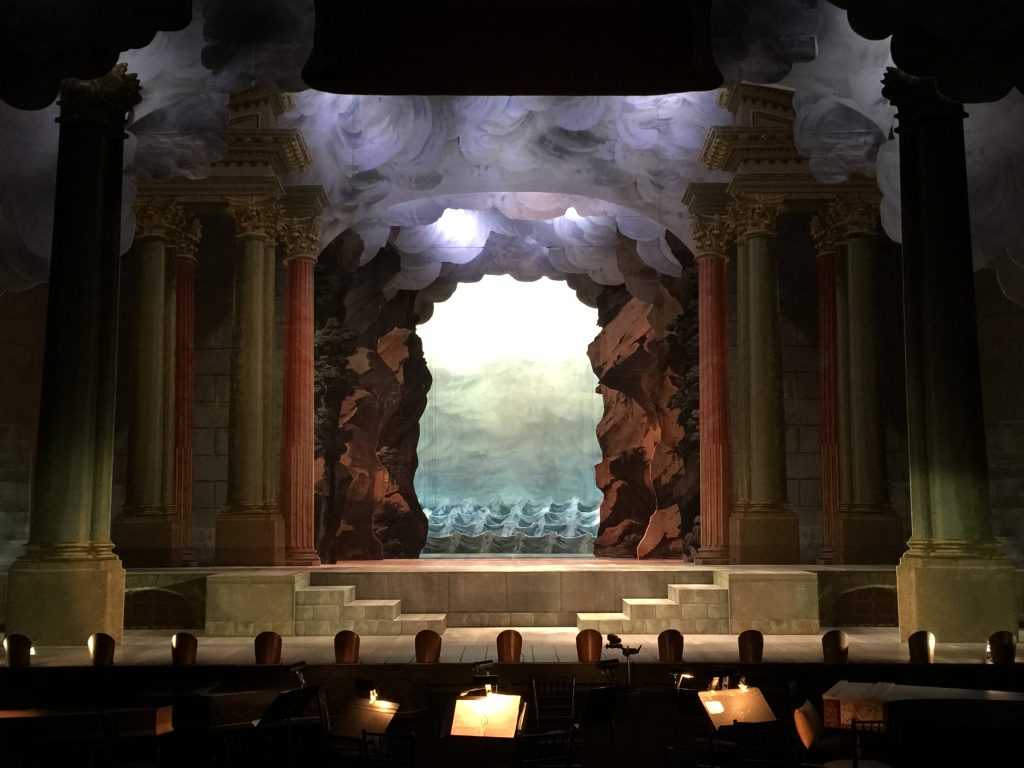Opera Director & Designer
The Reflections of Memory
Doctorate Leiden University
Baroque operas are in continuous need of a renewal of their interpretations and if the Historically Informed Performance movement has been making a mark on the musical side, it is still pertinent to wonder whether or not this musical phenomenon is also applicable to staged performance.

Set for Claudio Monteverdi’s il ritorno d’Ulisse in Patria
A cognitive approach to historically informed staging
Dissertation
Gilbert Blin describes in his dissertation how the stage director’s role can be the vector of an alternative approach, by exploring the vestiges of the original stage productions while illuminated by the principles of the aesthetics of the period and what is known of the stage practice of the period in question. These guidelines bring the approach to cognitive philology, because, in addition to the interest for the material evidence that remains, it focuses on the way the Baroque era was thinking when it aimed to elaborate opera as an artistic language. It takes into consideration the structures of the symbolic that can be perceived in the material culture of the Baroque era in order to produce all items and ideas necessary to stage a production today. But this approach is also cognitive by the way it acquires knowledge and understands historical facts through thought, experience, and the senses.
Period
The research is dedicated to Gilbert Blin’s work in staging operas of the seventeenth and eighteenth centuries. Nourished by a decade of productions for the Boston Early Music Festival, the first objective of his dissertation is to enable a better understanding of both his creative and interpretive processes in the operatic field. The main research question he attempts to answer in his dissertation can be phrased as follows: how can a post-modern stage director use historical research for creative purposes?
The title of this dissertation, The Reflections of Memory, is the appellation Gilbert Blin has been giving to his current approach as an artist and constitutes a conceptual answer to this question.
Get in touch
Copyright
© 2024 Gilbert Blin, All rights reserved